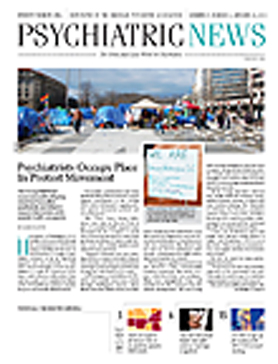Martinis “make me hate the people I love and love the people I hate,” a woman once commented in jest.
What she really may have meant was, “Martinis mess with my hate circuit.”
Indeed, the brain really does seem to contain a “hate circuit,” scientists have found. This circuit consists of the superior frontal gyrus, the insula, and the putamen. It becomes activated when subjects view people they hate or people whom they once loved, but who have rejected them.
And now a new discovery has been made about the so-called hate circuit: Depression appears capable of uncoupling it.
The senior investigator was Jianfeng Feng, Ph.D., director of the Center for Computational Systems Biology at Fudan University in Shanghai, China, and a professor of biology, computer science, and mathematics at the University of Warwick in the United Kingdom. The study findings were published October 4, 2011, in Molecular Psychiatry.
Feng and his group used resting-stage functional magnetic resonance imaging (fMRI) to examine nerve-circuit connections in some 90 brain regions in three groups of subjects. One was a group of 15 subjects with a first episode of major depression. A second group consisted of 24 subjects suffering from severe, treatment-resistant depression; they had been depressed, on average, for about three years. The third group consisted of 37 healthy control subjects matched on age, gender, and education with the depressed subjects. The scientists compared the fMRI results for the three groups.
The most significant difference found between the depressed subjects and the controls concerned the brain circuit associated with feelings of hate, namely the superior frontal gyrus, the insula, and the putamen. The links among these three components of the hate circuit had become largely disconnected in the two depression groups.
Thus it looks as if depression is able to uncouple the brain’s hate circuit, the scientists concluded in their paper, although, as Feng admitted to Psychiatric News, the opposite could also be the case—the uncoupling of the hate circuit could lead to depression.
But if depression is truly able to disconnect this circuit, what does it mean? “One possibility,” the scientists suggested, “is that the uncoupling of this circuit could be associated with impaired ability to control and learn from social or other situations that provoke feelings of hate toward self or others. This in turn could lead to an inability to deal appropriately with feelings of hate and an increased likelihood of both uncontrolled self-loathing and withdrawal from social interactions.” This agrees with the finding that depressed individuals usually have difficulty controlling negative thoughts.
And as Barbara Geller, M.D., a professor of psychiatry at Washington University in St. Louis, noted in the November 14, 2011, Journal Watch Psychiatry: “These seminal findings suggest that clinicians need to focus on patients’ negative feelings about themselves, especially when related to suicidality.”
And since depression has been linked with the brain’s hate circuit, it has another implication as well, Geller pointed out— that Freud may have been right when he wrote in Mourning and Melancholia that depression involves self-loathing.
Although the hate-circuit disconnect was especially flagrant in the depressed subjects, other nerve-circuit disconnects were noted in the subjects as well, the scientists reported. These circuits are known to be involved in the processing of attention, emotion, memory, reward responses, and risk responses.
Exactly what these changes mean is open to speculation. But one possibility regarding the diminished connection between the fusiform and lingual gyri, they suggested, may provide “a neural basis for impaired face-emotion processing in depressed people.” And as for the disconnect found between the hippocampus and parahippocampal gyrus, it “may reflect aspects of impaired memory functions in depressed patients.”
In future research, Feng said, he and his colleagues “will try to identify genes that are responsible for the three changed circuits reported in our paper.”
The study was funded by several sources including the National Natural Science Foundation of China, the National Basic Research Program of China, and the United Kingdom Engineering and Physical Sciences Research Council.
“Depression Uncouples Brain Hate Circuit” is posted at www.nature.com/mp/journal/vaop/ncurrent/pdf/mp2011127a.pdf.
